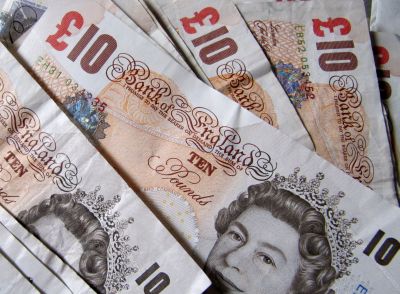A recent study by The World Bank found that more than 2 billion people (more than a quarter of the world’s population) do not have access to traditional banking.
Our current monetary and banking system requires such strict levels of identification and proof of asset ownership that a huge swathe of the world is denied access.
Extortionate rates
And if by some miracle, they are granted access to traditional banking and lending facilities, they will pay extortionate rates of interest to protect the lender against the risk.
It is for this kind of reason that many have looked more critically at the nature of money itself and a system that has, at the most fundamental level, barely changed in 500 years with the banks at its epicentre. Is there a better way to move money around? In particular, can technology and mathematics replace banks and ‘trust’, providing a viable alternative to the traditional monetary system?
 This kind of thinking was accelerated in 2008 by the financial crisis, which fostered a growing public distrust with the monetary system and the big banks who preside over it. And it is in this context that the first major digital currency ‘Bitcoin’ was launched, with its potentially revolutionary ‘Blockchain’ decentralised general ledger system. Blockchain essentially offers the possibility of a global digital ‘currency’, which is completely virtual, allowing near-instant and incredibly cheap transactions from one party to another and crucially involve no central bank or counterparty to clear the funds.
This kind of thinking was accelerated in 2008 by the financial crisis, which fostered a growing public distrust with the monetary system and the big banks who preside over it. And it is in this context that the first major digital currency ‘Bitcoin’ was launched, with its potentially revolutionary ‘Blockchain’ decentralised general ledger system. Blockchain essentially offers the possibility of a global digital ‘currency’, which is completely virtual, allowing near-instant and incredibly cheap transactions from one party to another and crucially involve no central bank or counterparty to clear the funds.
There are for certain, more questions than answers at this early stage in the technology’s development, and Bitcoin in particular is perhaps just as well known for its controversies as it is for its potential as a disruptive technology. However, what I think is more interesting, is this definite trend towards monetary decentralisation itself and the opportunities these kind of developments may bring. Money could well be heading the way of Uber, Twitter and Airbnb in ‘cutting out the middleman’- in this case the banks.
The potential ‘digitisation’ and decentralisation of the monetary system also represents a big opportunity in areas previously seen as economically unviable or impractical. Innovations in microfinance, crowdfunding, peer to peer lending and the so called Internet of things (IOT) become more viable in a ‘Bitcoin-Blockchain-like’ digital economy. If we give money itself an upgrade fit for the modern age, it can potentially shift from being an obstacle to innovation and growth in fintech and instead become a facilitator for it.
With this all in mind then, perhaps it is not just the banks that should worry about fintech innovation, but indeed all ‘middlemen’, from lawyers, investment bankers, and stock brokers to estate agents and accountants? A truly decentralised and digital monetary system points to a future where nearly all of our jobs have a potential ‘Uber’ lurking in the wings…
How much do you know about Bitcoin? Try our quiz!





